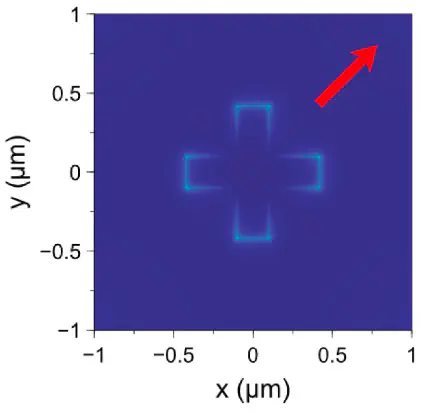
Abstract
Spectrochemical analysis of trace elements in complex matrices is crucial across various fields of science, industry, and technology. However, this analysis is often hindered by background interference and the challenge of detecting ultralow analyte concentrations. Surface Enhanced Infrared Absorption (SEIRA) spectroscopy is emerging as a viable technique to address these challenges as it can successfully reveal soluble and unmodified analytes in a label-free manner through their interactions with a bioreceptor following site-specific labeling with small infrared-active probes. In this study, we present and demonstrate an advanced method for mid-infrared spectroscopy utilizing a pixeled SEIRA substrate coupled with a peculiar infrared-active vibrational probe. We select a small azide moiety as the vibrational tag since its signature around 2100 cm− 1 is in the cell- and protein-silent window and its small size preserves the structure and biological function of the protein it integrates into. As model bioreceptor, we utilize an antigen-binding fragment (Fab’) derived from the therapeutic antibody trastuzumab, modified with azidoacetic acid, and its Her2 antigen as the soluble analyte. Employing mid-infrared SEIRA spectroscopy, we are able to monitor the immobilization of the azide-modified Fab’, and demonstrate the detection of analyte quantities as low as 83 amol within an area of 100 μm2.